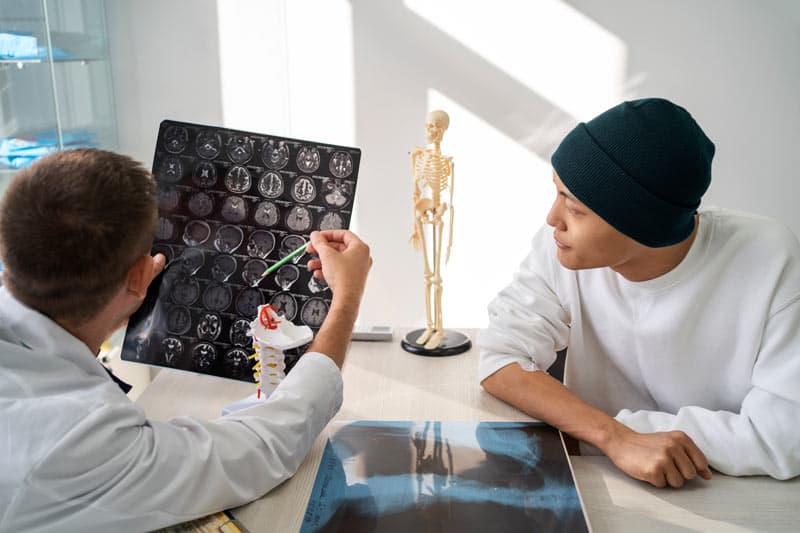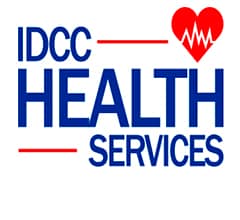When faced with neurological symptoms or concerns, scheduling an appointment with a neurologist is a crucial step toward understanding and addressing your condition.
Consult the best neurologist in Brooklyn today!
Neurologists are medical specialists trained to diagnose and treat disorders of the nervous system, which includes the brain, spinal cord, and peripheral nerves. In this comprehensive guide, we will walk you through what typically happens at a neurologist appointment, what to expect, and how to prepare for your visit.

What Happens During the Neurologist Appointment?
Now, let’s explore what typically takes place during your neurologist appointment:
Patient Registration and Medical History Review
Your appointment will begin with patient registration, where you’ll provide your identification and insurance information. The neurologist’s office will also ask you to fill out medical history forms or questionnaires. This information helps the neurologist understand your overall health and any relevant medical conditions.
Physical Examination
After reviewing your medical history, the neurologist will conduct a physical examination. This may involve checking your reflexes, coordination, muscle strength, and sensation. They will also assess your cranial nerves and look for any signs of neurological abnormalities.
Discussion of Symptoms
One of the most critical parts of the appointment is the discussion of your symptoms. Be thorough and honest in describing your experiences, as this information is essential for the neurologist’s evaluation. They may ask questions to gain a deeper understanding of your symptoms and their impact on your daily life.
Diagnostic Tests
Depending on your symptoms and medical history, the neurologist may recommend specific diagnostic tests. These can include:
- Imaging studies: Such as MRI or CT scans to visualize the brain and spinal cord.
- Electroencephalogram (EEG): To assess electrical activity in the brain.
- Nerve conduction studies: To evaluate peripheral nerve function.
- Blood tests: To check for specific markers or underlying conditions.
The choice of diagnostic tests will depend on your individual case and the neurologist’s assessment.
Discussion of Diagnosis and Treatment
Once the neurologist has gathered all necessary information, they will discuss their findings with you. This may include a preliminary diagnosis or a need for further tests. They will also provide information about treatment options, potential therapies, and lifestyle changes that could benefit your condition.
Addressing Your Questions and Concerns
This is the time to ask any questions you’ve prepared. Don’t hesitate to seek clarification on your diagnosis, treatment plan, or prognosis. A neurologist should be patient and willing to provide you with clear explanations.
Follow-Up Appointments and Ongoing Care
Depending on your condition, you may require follow-up appointments for further evaluation, adjustments to your treatment plan, or monitoring of your progress. Neurological conditions often require ongoing care and management, so it’s essential to maintain regular communication with your neurologist and follow their recommendations.
How long does a neurology appointment take?
A neurology appointment typically takes 15 to 30 minutes for a follow-up visit, while an initial consultation may last 45 minutes to an hour or more. The duration can vary based on the complexity of the case and the need for tests or procedures.
Preparation for Your Neurology Appointment
To ensure a smooth and productive consultation with your neurologist, it’s essential to prepare adequately. Taking a few steps beforehand can help you convey your concerns effectively and make the most of your appointment.
- Organize Your Medical History: Begin by compiling a detailed list of your past medical conditions, surgeries, medications, and allergies.
- Document Neurological Symptoms: Keep a record of any neurological symptoms you’ve experienced, including their frequency and duration.
- Gather Reports: If you’ve had imaging tests or neurological evaluations in the past, bring along the reports and results.
- Prepare Questions: Make a list of questions or concerns you want to discuss during the appointment, such as the potential causes of your symptoms and available treatment options.
By taking these steps, you’ll help your neurologist better understand your situation and streamline the appointment process.
Scheduling Your Neurology Appointment
Depending on your situation, there are various ways to schedule your neurology appointment:
- Emergency Care: If you have severe symptoms, consider visiting the nearest emergency room or urgent care center.
- Primary Care Physician: Consult your primary care physician, who can evaluate your symptoms and refer you to a neurologist if necessary.
- Online Booking: Contact the neurology clinic directly through their phone lines or use their online appointment booking system.
Treatment Plans in Neurology
Treatment plans in neurology are highly individualized and aim to improve your quality of life. After a comprehensive evaluation, your neurologist will work with you to create a personalized strategy.
Components of Your Treatment Plan:
- Medications: Your treatment plan may include medications to manage symptoms or neurological disorders. Your neurologist will discuss benefits, potential side effects, and proper usage.
- Therapeutic Interventions: Physical therapy, occupational therapy, speech therapy, or counseling may be recommended to enhance your functional abilities and well-being.
- Lifestyle Modifications: Your plan may incorporate dietary changes, exercise, stress management, and adequate sleep to positively impact your neurological health.
- Regular Follow-up: Schedule regular follow-up appointments to monitor progress, adjust treatment strategies, and address new concerns.
Active participation in your treatment plan and open communication with your neurologist are essential to achieving the best outcomes in managing your condition. Taking these steps will help you take control of your neurological health effectively.
Conclusion
A neurologist appointment is a vital step in addressing neurological concerns and obtaining a diagnosis and treatment plan. By understanding what to expect and adequately preparing for your visit, you can ensure that your appointment is productive and informative.
Remember that open communication with your neurologist is key to receiving the best care and managing neurological conditions effectively. If you’re experiencing symptoms or have concerns about your nervous system, don’t hesitate to schedule an appointment with a neurologist to get the answers and support you need for your health and well-being.
Our Locations
IDCC at 445 Kings Hwy
445
Kings Hwy 2nd fl Brooklyn, NY 11223
718-715-0624
IDCC at 2846 Stillwell Ave
2846
Stillwell
Ave, Brooklyn, NY 11224
718-715-0613
IDCC at 201 Kings Hwy
201 Kings
Hwy
#2nd, Brooklyn, NY 11223
718-715-0629
info@idcchealth.org
